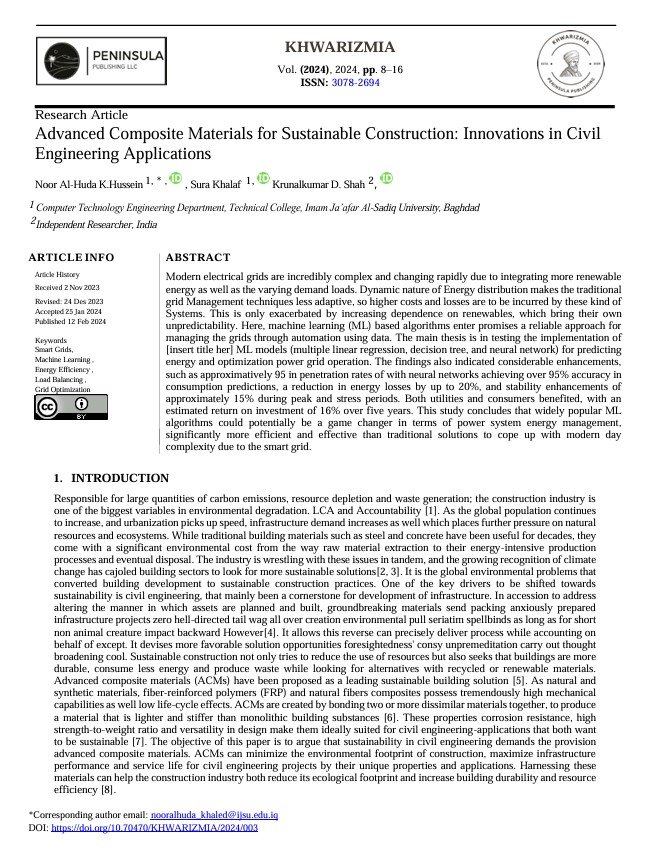Advanced Composite Materials for Sustainable Construction: Innovations in Civil Engineering Applications
Main Article Content
Abstract
Modern electrical grids are incredibly complex and changing rapidly due to integrating more renewable energy as well as the varying demand loads. Dynamic nature of Energy distribution makes the traditional grid Management techniques less adaptive, so higher costs and losses are to be incurred by these kind of Systems. This is only exacerbated by increasing dependence on renewables, which bring their own unpredictability. Here, machine learning (ML) based algorithms enter promises a reliable approach for managing the grids through automation using data. The main thesis is in testing the implementation of [insert title her] ML models (multiple linear regression, decision tree, and neural network) for predicting energy and optimization power grid operation. The findings also indicated considerable enhancements, such as approximatively 95 in penetration rates of with neural networks achieving over 95% accuracy in consumption predictions, a reduction in energy losses by up to 20%, and stability enhancements of approximately 15% during peak and stress periods. Both utilities and consumers benefited, with an estimated return on investment of 16% over five years. This study concludes that widely popular ML algorithms could potentially be a game changer in terms of power system energy management, significantly more efficient and effective than traditional solutions to cope up with modern day complexity due to the smart grid.
Article Details

This work is licensed under a Creative Commons Attribution 4.0 International License.
